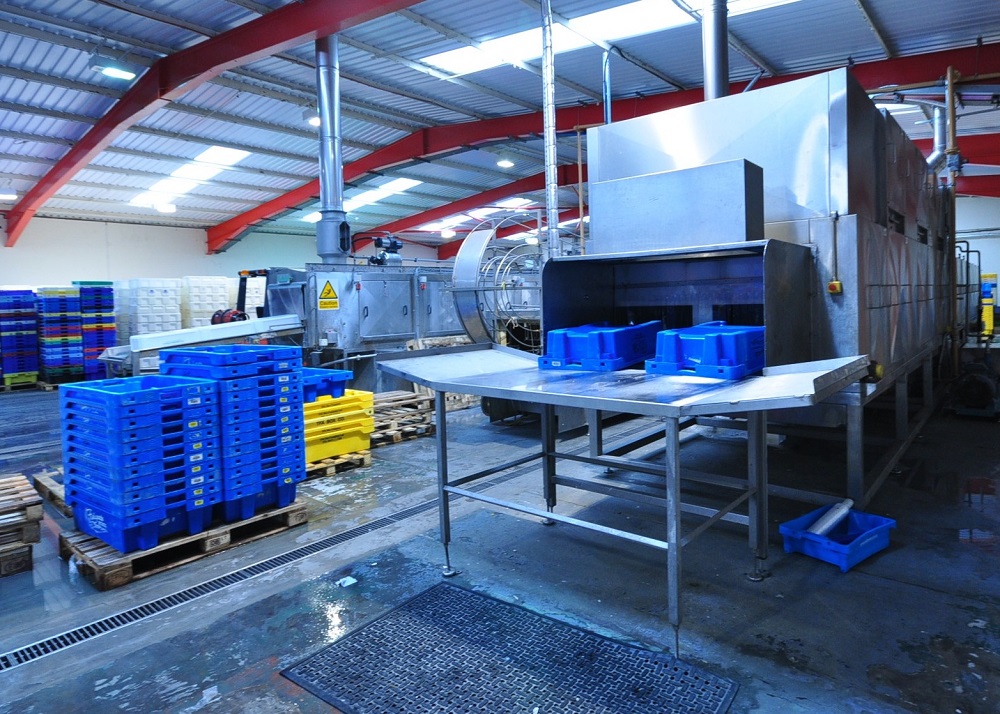What 2016 Will Bring for the Food Logistics Industry
30th November 2015

The food logistics industry is very rarely talked about outside of the industry itself or its immediate connecting industries. Many consumers very rarely consider the journey their food takes before it ends up on the grocery shelves or in their pantry cupboard.
However, what goes on in the supply chain before the food gets to the grocery store is a huge part of the carbon footprint that consumers leave behind. Take for example buying a salmon fillet from the grocery store that uses single trip polystyrene boxes throughout their supply chain, the same grocery store that does not have strict guidelines as to how those boxes are disposed of nor how the fish should be protected during transportation to avoid waste. This can mean that you as a consumer are endorsing a rather inefficient supply chain. One that is actively adding to packaging and food wastage throughout the UK.
Luckily as we end 2015 and enter into the New Year, we do so with a consumer market that is becoming increasingly aware of the role that they play in a sustainable future and are taking interest in the products they buy and how they are produced, transported and even packaged.
2015 has seen the food logistics industry take leaps and bounds towards becoming a more sustainable and resource efficient sector in the British supply chain. We have seen the expansion of returnable transit packaging into many different suppliers logistic considerations as well as debates on how the industry should move towards sustainability.
PPS has been at the forefront of returnable transit packaging in the UK, having recently purchasing Alison Handling Services and expanding its offerings. Joanne Moss, the Managing Director of PPS, takes a look at 2016 and what trends the industry can expect to see through the year.
The Year of the Carbon Footprint
The industries carbon footprint will be a big focus for the food logistics industry throughout 2016. Although not an altogether new concern, we will see a renewed focus on this issue. Throughout 2015 we saw debates on which specific factors played a bigger role in reducing the carbon footprint of the supply chain, especially in the food and drink supply chain.
Debates around food waste through product damage and transportation, single trip packaging, the enforcing of stricter recycling guidelines, closed loop systems as well as resource efficiency have been top of mind for influential players in the industry.
However, throughout 2016 it will become increasingly clear that the creation of a truly sustainable future will only be achieved through the addressing all of these factors. We can see companys moving towards reducing their carbon footprint by embracing change in almost all aspects of their business. Changing to a better form of packaging will no longer be enough to meet greener goals, however, it will be a start.
Food Waste an Increasing Issue
Debates around food waste are escalating in the UK, with the supply chain under focus of late. Currently almost a third of the 15 million tons of food waste being produced in the UK is sitting at manufacturing and supply chain levels. The role that the supply chain plays in annual food wastage of the UK cannot be ignored.
However, food waste requires joint forces to resolve, not just packaging. Although PPS has seen a reduction in food wastage where food may have been damaged by cardboard boxes through plastic returnable transit packaging, there is a lot of food wastage that packaging does not play a role in.
Product Design and Innovation
Packaging in the supply sector is often a second thought and more often than not is seen as a standard piece of equipment that simply gets the job done. However, throughout 2016 we are expecting to see some innovative designs in packaging that will bring it into the forefront of the supply chain.
As suppliers of returnable transit packaging, we have plans of our own for some innovative crates with leak-proof lids which we are excited to be expanding in into the market during 2016. Reusable packaging is being adopted on a wider scale, giving us the platform to develop new designs for some of our crates.
PPS plans to move returnable transit packaging into areas where one trip packaging has been the only answer with our new Re-fresh box. We also look to continue develop services that fill customer specific requirements, allowing returnable packaging an avenue in niche markets.
2016 is set to be an interesting year for the food logistics industry and we are excited to see this ever so important sector continue to take steps towards sustainability and resource efficiency with the help of WRAP and the Courtauld Commitment.

